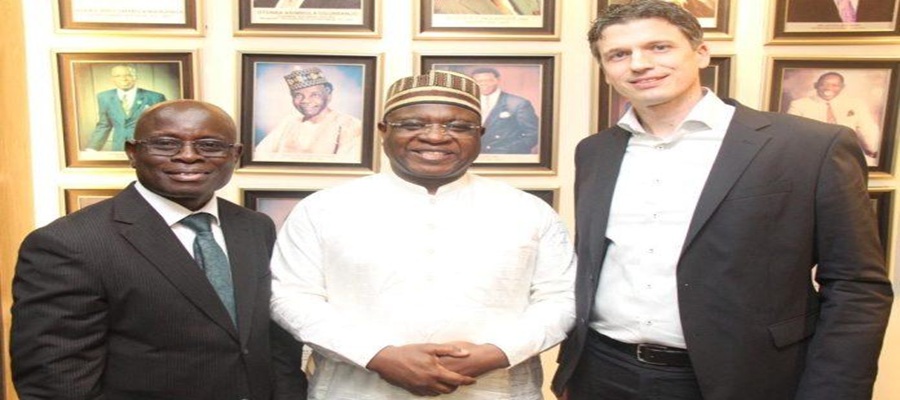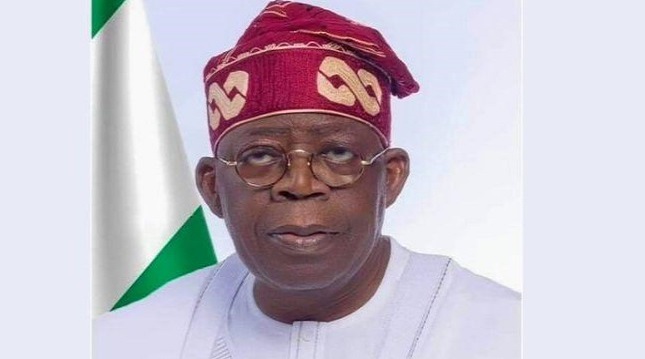News
Nigeria’s Future is Mobile- Experts
Experts in mobile communications technology have stressed the need for educators in Nigeria to be up to speed with modern reality if the country would meet her millennium develop goals (MDGs) target and beyond.
After a thorough analysis of Nigeria’s market leadership position in the Middle East and Africa (MEA), in only about a decade since mobile telephony was introduced, various speakers at the conference tagged “MobileWeb West Africa” agreed that the country’s education system was not in sync with present reality.
Alex Dadson, managing director, Qualcomm West Africa, who spoke to Nigeria CommunicationsWeek exclusively stated that the education system in Nigeria would need a general overhaul to meet the market reality.
Dadson stated that multinational ICT firms usually have to retrain local graduates to fit into the workplace because of the gap between what is taught in the Universities and the work-place environment.
And as a practical demonstration of filling-in-gap, the leading global US chipset manufacturers organized a special training workshop for about 30 young Nigerian application developers at the MobileWeb conference.
It also introduced a new product into the market called Augmented Reality.
Dadson stated that Augmented Reality. is a special app that identifies images and augment the users’ experience in the mobile ecosystem.
Tunde Kehinde, a young and leading under 30 mobile online entrepreneur concurred with Dadson that Nigeria’s education system need major innovative overhaul to meet market reality.
“I attended primary and high school in Nigeria, but went abroad for post secondary education. Yes, there is a need for some major overall in our education curricula to fit into the advancing technological trend,” said Kehinde.
Kehinde’s Jumia is rated ahead of Amazon and eBay in global search engines from Nigerian searches for online shopping.
He believes Nigerian have the capacity to excel, but need the education to match their counterparts in other markets across the globe.
Several other experts also spoke on the emerging mobileweb space as next big thing in online entrepreneurship.
Elo Umeh, CEO of Twinpine Mobile Advertising reiterated that mobile web advertising is design as a veritable tool for big multinationals and local SMEs to explore and promote their businesses to their prospective clients.
Umeh, added that busineses can set value at the long run, for money invested to the business, by advertising on mobile platforms which relate to return on investment.
Specifically, he stated that this is done by showcasing products and services to both prospective and existing customers. Mobile web advertising is possible through website posters, SMS platforms on mobile phones.
The Twinpine executive stressed that their big push is a 30 million customer target by 2014, with services cutting across all sectors of the Nigerian economy including news, entertainment, gossips and sports.
Mrs. Harey Oyindamola Ogundeyi, industry manager, Google, stated that there was a huge market to be discovered in mobile branding opportunities for brands to reach their customers.
These platforms include the use of mobile video (which is in vogue) amongst music lovers, through mobile phones or the internet.
She noted that this can be harnessed by using it at people’s convenience, either at home, work or on the move, describing it as a unique feature.
Ogundeyi stressed further that this devices has created a platform of opportunities of freedom for people to part into civilized world. She declared that the platform makes “advertising on the net easy, through the process of search and display.”
Olusegun Martins, head technology at Insight Communication, shared similar views with Mrs. Ogundeyi.
He noted that the modern day technological advancement and innovation means mobile users are connected to various sectors of activities on the World Wide Web (www), for gathering and dissemination of information.
Martins added that this technological techniques makes brands a believable character, in any story message it delivers to its audience. He added (unscientific) that well over 25 percent on Nigerian mobile phone users are on the smartphones segment, turns it into life companionship.
“This trend enables people to sleep and wakeup with their phones even at night and early hours of the morning.”
Martins describes the emerging lifestyle “as emotional connection, media hub, shopping companies and personal assistance tools to life.”
Mr. Deepanker Rustagi, general manager, VCconect.com X-rayed the importance of the mobile web platform in helping to develop the small medium entrepreneur to grow their business by assisting them to design good strategies, to enable their prospective customers, which will go a long way, for them to have value for their investments.
News
NGX Unveils Net-Zero Plan for Greener Capital Market

Nigerian Exchange Limited (NGX) has launched the NGX Net-Zero Programme to guide listed companies toward clear carbon reduction pathways and enhanced climate disclosures aligned with global investor standards.

NGX
The high-level launch engaged chief executives of quoted firms alongside development partners including German Investment Corporation KfW, DEG, and African Foresight Group (AFG), NGX’s implementation partner. Issuers and investors discussed financing decarbonisation, sustainability practices, and attracting climate-aligned capital.
NGX Group Chairman Dr Umaru Kwairanga described the initiative as concrete climate action, commending partners for two years of groundwork. “Today marks leadership and decisive action. Climate change has become a core business imperative, with capital markets mobilising capital and setting standards,” Kwairanga said.
He positioned NGX Net-Zero to support emissions measurement, disclosure, capacity building, and sustainable finance access, urging CEOs to embrace it strategically rather than as compliance. Kwairanga reaffirmed NGX’s goal to make Nigeria’s capital market Africa’s green finance hub.
Group CEO Temi Popoola called climate action a business imperative, noting sustainability-embedded firms attract capital, manage risks, and stay competitive. DEG Management Board Member Monika Beck highlighted partnerships scaling impactful, commercially viable climate solutions.
The event closed with a ceremonial gong marking the programme launch and send-off for outgoing DEG Regional Director Bernd Telemann.
News
Nigeria Off EU High-Risk Money Laundering List in Major Financial Win

Nigerian Financial Intelligence Unit (NFIU) has hailed Nigeria’s removal from the European Union’s list of high-risk third countries for Anti-Money Laundering and Countering the Financing of Terrorism (AML/CFT) as a landmark achievement endorsing the nation’s reform efforts.

Nigerian Financial Intelligence Unit (NFIU)
NFIU CEO Hafsat Abubakar Bakari said the delisting, contained in European Commission Delegated Regulation (EU) C (2025) 8460 adopted December 4, 2025 and effective January 29, 2026, affirms sustained AML/CFT and Counter Proliferation Financing (CPF) reforms.
The move follows Nigeria’s exit from the FATF Jurisdictions under Increased Monitoring after addressing strategic deficiencies, alongside Burkina Faso, Mali, Mozambique, South Africa and Tanzania.
Bakari noted the European Commission recognised Nigeria’s strengthened AML/CFT effectiveness, closed technical gaps, and fulfilled FATF Action Plan commitments leading to grey list removal in June and October 2025.
The delisting eliminates enhanced due diligence requirements for EU financial transactions, easing compliance, boosting cross-border flows, and enhancing Nigeria’s appeal for European trade, investment and partnerships.
The NFIU attributed success to President Bola Ahmed Tinubu’s political will and collaboration among National Assembly, law enforcement, regulators, judiciary, private sector and development partners.
The agency reaffirmed commitment to ongoing FATF, GIABA, EU engagement and domestic framework resilience to maintain international confidence in Nigeria’s financial system.
News
FG Directs Banks, Fintechs to Remit VAT on Service Fees

The Federal Government has directed all banks and fintechs to collect and remit 7.5 per cent value-added tax on certain electronic banking services, effective Monday, January 19, 2026, according to an email notice issued by payment platforms.

The VAT will apply to electronic banking charges, including mobile money transfers, USSD transaction fees, and card issuance fees, according to an email notice on Wednesday shared with customers by Moniepoint.
For example, if a bank charges N100 to make a transfer, the 7.5 per cent VAT will be applied to that service fee, not the money being sent.
“From Monday, January 19, 2026, we are required to collect a 7.5 per cent VAT, to be remitted to the Nigerian Revenue Service (formerly known as the Federal Inland Revenue Service).
“VAT will apply to certain banking services that include electronic banking charges such as mobile banking fees (transfers), USSD transaction fees, and card issuance fees,” the email read.
Other operators are expected to issue similar notices to their customers in the coming days. Services that will remain exempt include interest earned on deposits and savings, meaning customers will not pay tax on the returns from their accounts.
The NRS, formerly known as the Federal Inland Revenue Service, has set the deadline to ensure that all commercial banks, microfinance banks, and electronic money operators comply with the collection and remittance requirement.
Moniepoint stressed that this is not a price increase but a statutory obligation. “Moniepoint is required to collect and remit VAT to the Nigerian Revenue Service,” the company said in a statement.
The move is part of the government’s broader efforts to standardise VAT collection on digital financial services and expand revenue generation amid Nigeria’s growing digital economy. VAT on banking transactions is not entirely new; the NRS is now enforcing uniform collection rules across all platforms, ensuring compliance across the sector.
Customers have been assured that the new tax will be clearly itemised, with the VAT shown separately on transaction statements and reports.
In December, several commercial banks informed customers that the N50 stamp duty would be deducted on electronic transfers of N10,000 and above, following the commencement of provisions of the new Tax Act.
The charge, previously known as the EMTL, has now been formally reclassified as stamp duty and will be applied as a one-off fee on qualifying electronic transfers.

 E-Financial3 days ago
E-Financial3 days agoAngst as FG Demands 7.5 Percent VAT on Mobile Bank Transfers, USSD

 News3 days ago
News3 days agoMoniepoint Launches Second Cohort of DreamDevs Initiative to Double Down on Africa’s Tech Talent Pipeline

 E-Financial3 days ago
E-Financial3 days agoNGX lists 3.156bn UBA shares, boosting capital to N513Bn

 E-Financial3 days ago
E-Financial3 days agoThe Missing Pieces in Nigeria’s Banking Recapitalisation

 Telecom3 days ago
Telecom3 days agoGlo Unveils Immersive Gaming Experience, Travel Saga

 E-Business3 days ago
E-Business3 days agoHalf of Global Companies Build SOCs to Enhance Cybersecurity, with a Focus on Human Expertise

 E-Financial2 days ago
E-Financial2 days agoPaystack Expands Beyond Payments into Banking

 General News3 days ago
General News3 days agoNITDA DG Reaffirms Nigeria–U.S. Partnership on Data Privacy, AI and Cybersecurity



























